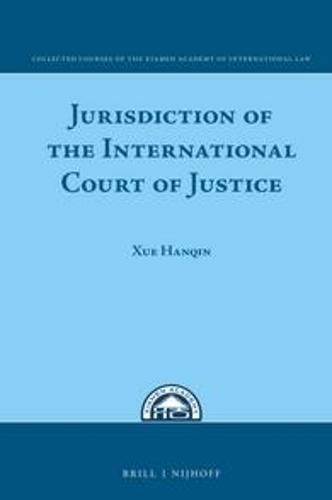Readings Newsletter
Become a Readings Member to make your shopping experience even easier.
Sign in or sign up for free!
You’re not far away from qualifying for FREE standard shipping within Australia
You’ve qualified for FREE standard shipping within Australia
The cart is loading…






The International Court of Justice, principal judicial organ of the United Nations, plays an important and unique role in the peaceful settlement of international disputes. As a third-party mechanism, it is a highly technical and well-structured institution. Through its continuous and consistent jurisprudence, it provides legal certainty, stability and predictability to the interpretation and application of international law. This special course intends to introduce some general concepts that underlie international adjudication and the basic rules and principles governing the competence and jurisdiction of the Court. Notwithstanding its prominence, the Court does not have a general and unconditional competence in dispute resolution. Its jurisdiction is based on the consent of the States, both in general terms as well as in each specific case, which reflects the attributes of the State system. Jurisdiction is a substantive matter. The Court’s decision on the question of jurisdiction is no less important than on the merits.
$9.00 standard shipping within Australia
FREE standard shipping within Australia for orders over $100.00
Express & International shipping calculated at checkout
The International Court of Justice, principal judicial organ of the United Nations, plays an important and unique role in the peaceful settlement of international disputes. As a third-party mechanism, it is a highly technical and well-structured institution. Through its continuous and consistent jurisprudence, it provides legal certainty, stability and predictability to the interpretation and application of international law. This special course intends to introduce some general concepts that underlie international adjudication and the basic rules and principles governing the competence and jurisdiction of the Court. Notwithstanding its prominence, the Court does not have a general and unconditional competence in dispute resolution. Its jurisdiction is based on the consent of the States, both in general terms as well as in each specific case, which reflects the attributes of the State system. Jurisdiction is a substantive matter. The Court’s decision on the question of jurisdiction is no less important than on the merits.